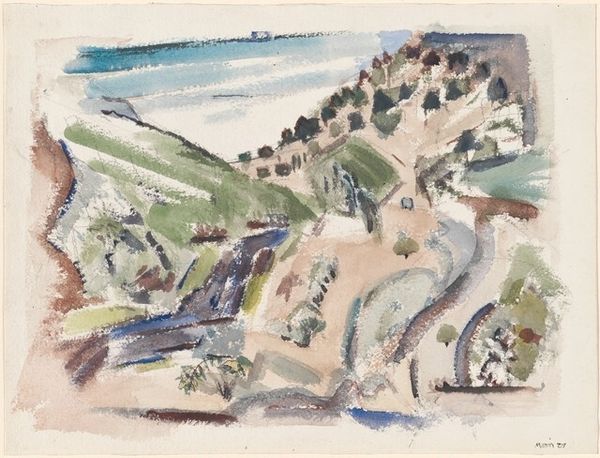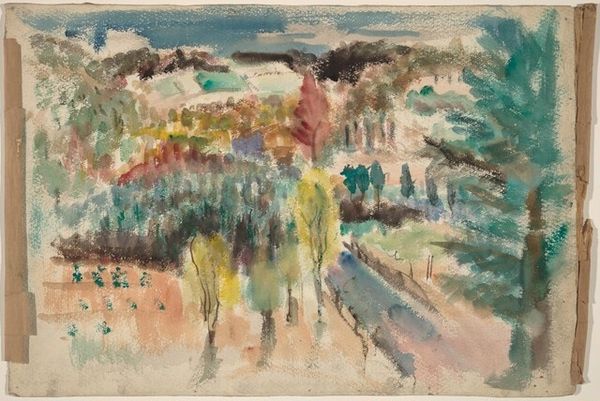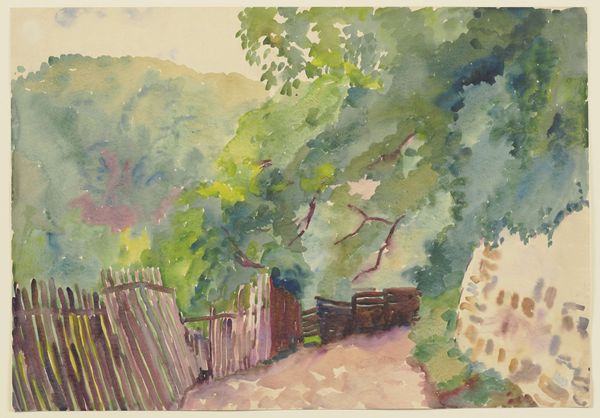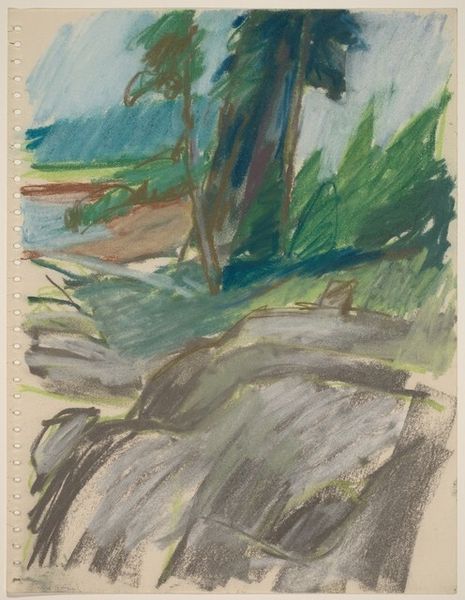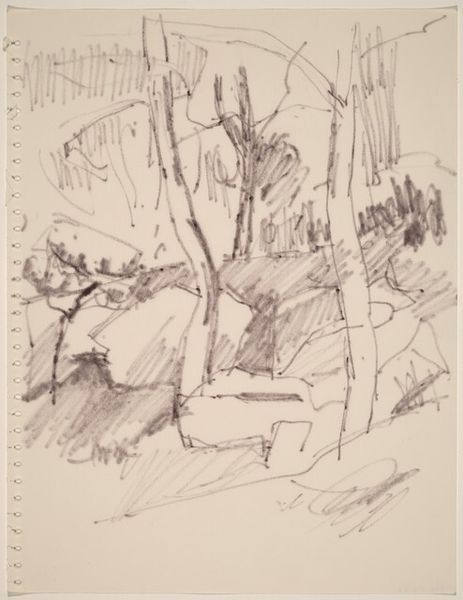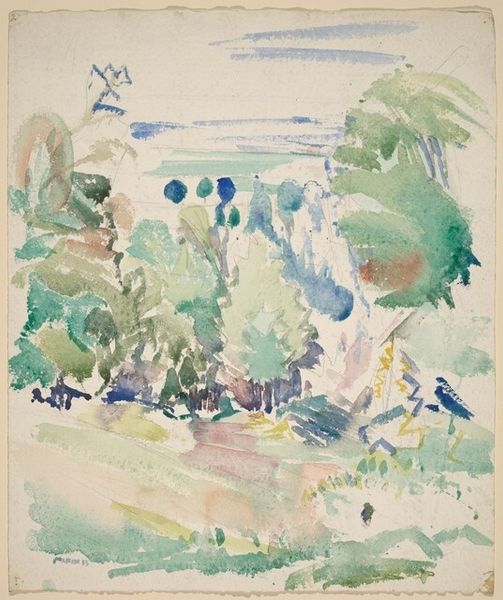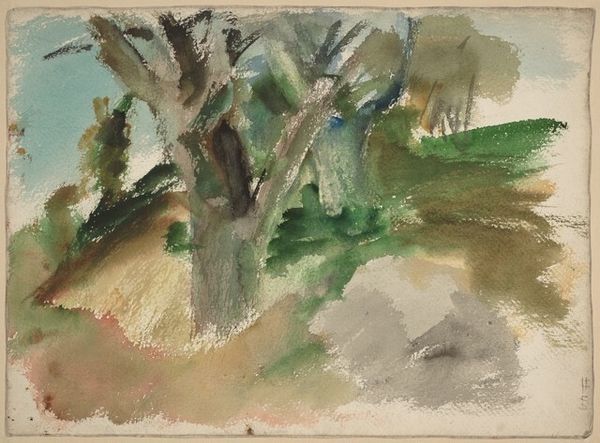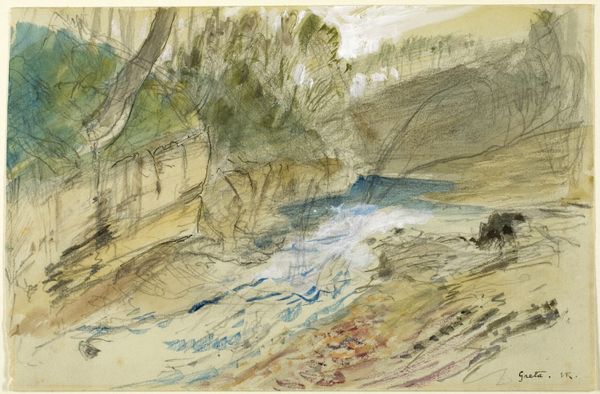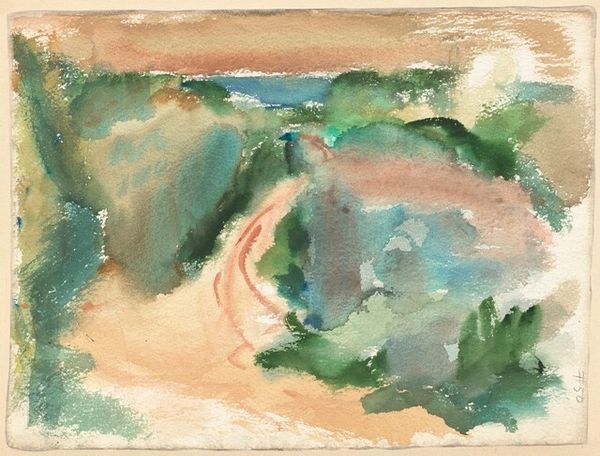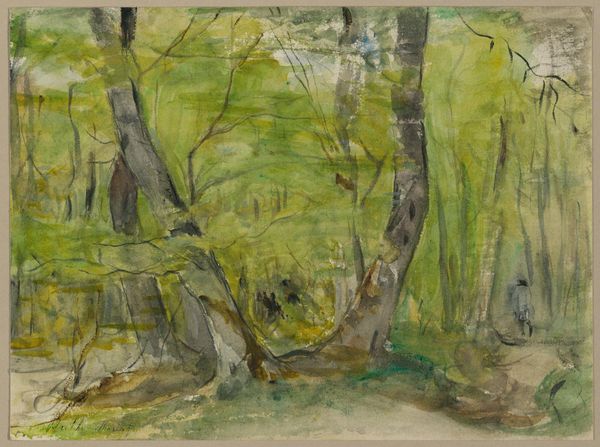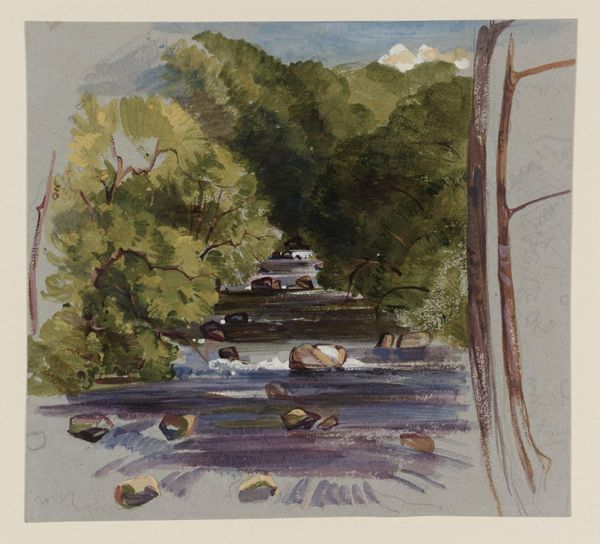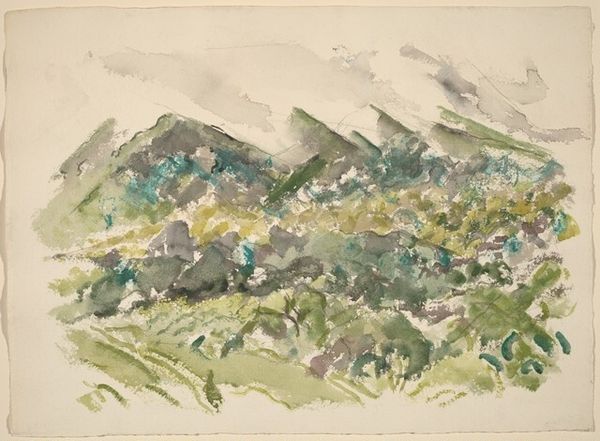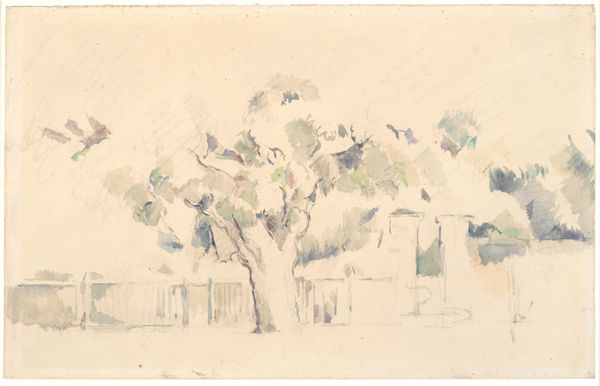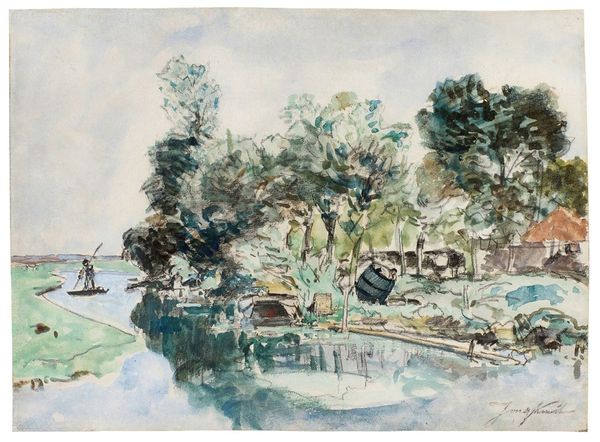
Dimensions: overall: 35.5 x 48.2 cm (14 x 19 in.)
Copyright: National Gallery of Art: CC0 1.0
Curator: John Marin's "Small Point, Maine" from 1931—a landscape rendered in watercolor and ink—waits for us here. What captures your eye first? Editor: An odd calmness settles in just by looking at it. Not exactly peaceful, perhaps a touch melancholic. The light is interesting; muted, grayed out, like the sky is always on the verge of weeping. Curator: Right! There's something beautifully unsettled about his scenes. The lines vibrate and intersect, like the landscape itself is moving and breathing right before your eyes. Marin had a real knack for capturing this vitality in nature. Editor: He reduces forms to near abstractions, doesn't he? Those rapid brushstrokes could be buildings or cliffs. Trees are just suggestions. How important is it, actually, to try identifying elements when confronted with something like this? Curator: For Marin, I suspect, the sensation of being *in* that space was more vital than a photorealistic rendering. He wanted to communicate what it *felt* like, the energy of it. The formal interplay of color, line, and the white space of the paper generates, to me, the bracing salt air and the yielding granite underfoot. It’s deeply experiential. Editor: Well said. It almost dissolves the concrete world, offering glimpses of a world caught mid-flux. Looking closely, it reveals how carefully balanced the composition is—a dance of diagonals and layered forms—giving order to what at first seems completely chaotic. Curator: Marin always walked this tightrope beautifully, between representation and expressive abstraction. His goal wasn't necessarily mirroring reality but conveying an emotional response to it, transforming place into feeling. Editor: So, “Small Point, Maine” isn’t about a specific locale but a translation of the feeling *of* Maine. That shift invites a new kind of seeing and being in the world. Curator: Precisely! Maybe this pushes us toward deeper sensitivity to place…or, at least, allows for a meditative moment where perception gets poetic. Editor: Yes, I'm more attentive now, suddenly considering how to frame what feels "real" when seeing.
Comments
No comments
Be the first to comment and join the conversation on the ultimate creative platform.
